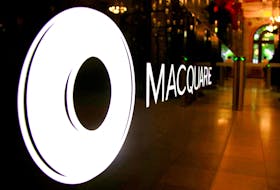By Francesco Guarascio and Michael Shields
BRUSSELS/ZURICH (Reuters) - Swiss exchanges risk losing direct access to European Union investors from July 1 in a potential blow to Switzerland's financial industry after the bloc said on Tuesday there had been no progress in talks with Bern over a new partnership treaty.
The Swiss government said it will retaliate with measures to defend Swiss stock exchanges if the EU blocks their access to its investors, saying talks on a partnership treaty should not be linked to the so-called equivalence regime.
Swiss-EU relations suffered in 1992 when Swiss voters rejected joining the European Economic Area, leading to a negotiated patchwork of 120 accords that now govern ties. The partnership treaty in question would sit atop those accords.
Although the loss of trading access granted under an equivalence regime would also have broad financial repercussions for the 28-country European Union, it is seen as inevitable in Brussels after years of inconclusive negotiations.
The hardening of the EU stance is also partly linked to parallel talks underway with Britain over Brexit, as a lenient approach to the Swiss could encourage London to seek softer terms, an EU diplomat told Reuters.
European Commissioner Maros Sefcovic told a news conference that the European Commission had at its weekly meeting noted a lack of progress in the talks, which was a precondition for granting an extension to the equivalence regime.
The EU executive therefore offered no lifeline to Swiss exchanges, despite having earlier said that its meeting was the last chance to make a proposal to extend a June 30 deadline.
"If the European Commission does not decide otherwise, the equivalence decision (on Swiss exchanges) will automatically expire on June 30," Sefcovic said.
NOT SO BAD?
Bern said in November it would ban trading of Swiss shares on EU stock exchanges if Brussels ended the equivalence regime, which could paradoxically help reduce disruption in trading as shares that are not liquid in EU trading venues can be traded on non-equivalent exchanges outside the EU.
If Bern applied its ban, Swiss shares would no longer be traded in the EU, making them less liquid in the bloc and allowing EU-based banks and investors to continue trading in Swiss exchanges after equivalence expires, an EU official said.
It is unclear how strictly the Swiss would apply the ban, the official added, while another official said that some disruption and higher costs were likely.
Exchange industry officials in London said EU investors would still be able to trade Swiss shares, but only through a broker that is a member of the Swiss exchange in Zurich, rather than having a choice of exchanges like Aquis, Cboe and Turquoise that help to drive down prices.
"It means you end up with an effective monopoly for a period," said Alasdair Haynes, chief executive of pan-European trading platform Aquis, which accounts for 6% of daily trading in Swiss shares.
The clash will be closely watched by British regulators who could end up in a similar situation if Britain leaves the bloc without a deal.
"All this could be a shot across the bows of the UK. By not granting the Swiss equivalence, the EU is talking serious stuff," Haynes said.
"NO MIRACLE"
Brussels has used the deadline as leverage to convince Bern to endorse a broad partnership treaty that was agreed by the two sides in November and in December temporarily extended the equivalence regime by six months until the end of June, after talks with Bern failed to reach a compromise.
But the Swiss asked for more clarifications last week on several issues, including wages and citizens' rights.
A diplomat told Reuters that the Commission had effectively decided at Tuesday's meeting not to extend the equivalence for Swiss exchanges, but will formally announce the decision on Friday after an EU leaders' summit in Brussels.
Under EU rules it would no longer be possible for the EU Commission to propose an extension after Friday.
The Swiss could still make a last-minute offer before the summit to avoid punitive measures on its bourses, which rely on EU clients, he said. However, this is seen as highly improbable.
"There will be no miracle," the diplomat said.
An EU official said the bloc's states were supporting the way Brussels was handling this issue, signaling that they would not try to force the Commission to a last-minute deal.
In spite of the likely sanctions on Swiss exchanges, Brussels continues to support the ratification of a new treaty governing relations between Switzerland and the EU bloc.
"Our doors remain open to conclude the agreement before the end of this commission's mandate," Sefcovic said, underlining however that the draft treaty already agreed with Bern could not be changed. The mandate ends on October 31.
The pact would ensure that Switzerland routinely adopts changes to the rules of the EU single market and provide a better platform to settle disputes. But some Swiss worry it might make it easier to import EU workers and undercut wages.
(Additional reporting by Huw Jones in London; Writing by Francesco Guarascio; Editing by Robin Emmott, Jan Harvey and Alexander Smith)








